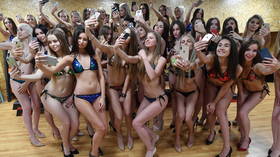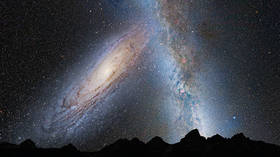Disney+ recuts own classics: Why do corporate gatekeepers think we will turn racist if they don't censor content?

Launch of Disney+ was accompanied by an announcement that some of its movies would be shown edited to suit modern day censors. This is a cowardly, ineffective, and intellectually dishonest way of fighting social ills.
Disney+ is the studio's long-awaited multi-billion foray into the streaming wars. Its back catalogue includes classic children's films, Star Wars feature films, Marvel and new television series. This material stretches back almost ninety years, and society has changed dramatically over that period. This presents Disney with a problem. Depictions of ethnic minorities, foreign cultures and women in old material are often at odds with current views.
Once they won Oscars – but now you are not allowed to see them
Disney has taken steps to soften controversial material. The Jim Crow character – a caricature of black Americans – has been edited out of Dumbo in the version for Disney+. The Siamese Cat song from Lady & The Tramp will be changed in the forthcoming live-action remake.
One film not on the Disney+ schedule is the musical Song of the South (1946). It features Uncle Remus, a black main character-narrator (played James Baskett), telling folk tales about animals. It was an innovative color film that combined live action and animation. Despite its success, the film was later criticized as being too sympathetic towards Reconstruction Era America and reinforcing negative racial stereotypes. Disney has since distanced itself from the film. The movie has never been released on home video in the USA, though it has been released in non-American regions. This suppression of Song of the South has deprived American audiences of Baskett's Academy Award-winning performance.
Also on rt.com Scorsese may be right that Marvel is ‘not cinema’ – but superhero films make us feel more than identity-politics Oscar baitDespite the widespread assumption (mainly by people who have not seen the film) that Song of the South "is racist", some people want the film to be shown again. Prominent black Americans, such as Whoopi Goldberg, have called for the full film to be released.
If in doubt, cut it out
But the censor's scissors can often be a more insidious tool against art than outright bans. In an editorial column, prominent animation critic Reuben Baron identified how self-serving and destructive these changes are.
"If you try to recut these movies to remove the racist or historically insensitive content, the movies become incomprehensible. If the rumors are true and Disney+ will attempt such major editing in at least one case, it seems as if Disney is trying to continue to cash in on the popularity of their classic animated features while dishonestly trying to hide those films' dated and troubling content."
Editing out characters and scenes distorts art and sanitizes the creators' attitudes. Hiding evidence of past attitudes makes them inaccessible.
Left cultural elites think ordinary audiences are potential bigots
The underlying fear of the liberal-left media and social commentators is that people are impressionable and that racist attitudes are waiting to emerge; exposure to racist material stimulates latent racism lurking in everyone. It shows the political-cultural elite do not believe in the good sense and tolerance of ordinary people.
Mistrust of the masses is apparent in many commentators. Convinced of their righteousness, isolated from criticism and insulated by crowd-funding platforms, social-media commentators search pop culture for moral deficiencies.
They pose the question "How can this be acceptable?" Their followers include activists who have knowledge of theories promoted by university media-studies and gender-studies courses and subscribe to the theory of systemic racism. That describes racism that is so endemic that it is embedded in organizations and perpetuated unknowingly by individuals and groups. This is a doctrine of the original sin, where people will never be free of guilt and must spend their lives atoning for moral infractions. It is these "woke" video commentators and social-media activists who volunteer to act as censors and moral guardians, determining what less enlightened individuals should be able to see.
Also on rt.com I used to think strippers who drug & rob men were scum. Turns out they are ‘empowered feminists’Successful social-media influencers become cut off from criticism and perceive criticism of their ideas as racist or misogynist, reinforcing misanthropic views of people. In a recent talk Lindsay Ellis, a video commentator who has built her career on critiquing popular movies from a feminist perspective, characterized the internet today as a place where "bad-faith actors feel very empowered". She admitted that she does not read comments on her videos.
Will it ever stop?
Social-media pressure works only because entertainment companies such as Disney have grown pathologically sensitive to negative public comment, that by giving in to a few thousand vocal individuals, companies open themselves to further pressure. Every concession leads to new demands from campaigners. Is this the way we want our access to culture and information to be determined? I suggest companies, governments and individuals should be more robust in defense of outdated speech – even speech they disagree with – and say to the social-media swarms "If you don't like what you're watching, change the channel. If you don't like what we're watching, mind your own business". Let's see these films and cartoons whole and unaltered.
Alexander Adams is a British artist and writer. His book Culture War: Art, Identity and Cultural Entryism is published by Societas.
The statements, views and opinions expressed in this column are solely those of the author and do not necessarily represent those of RT.














